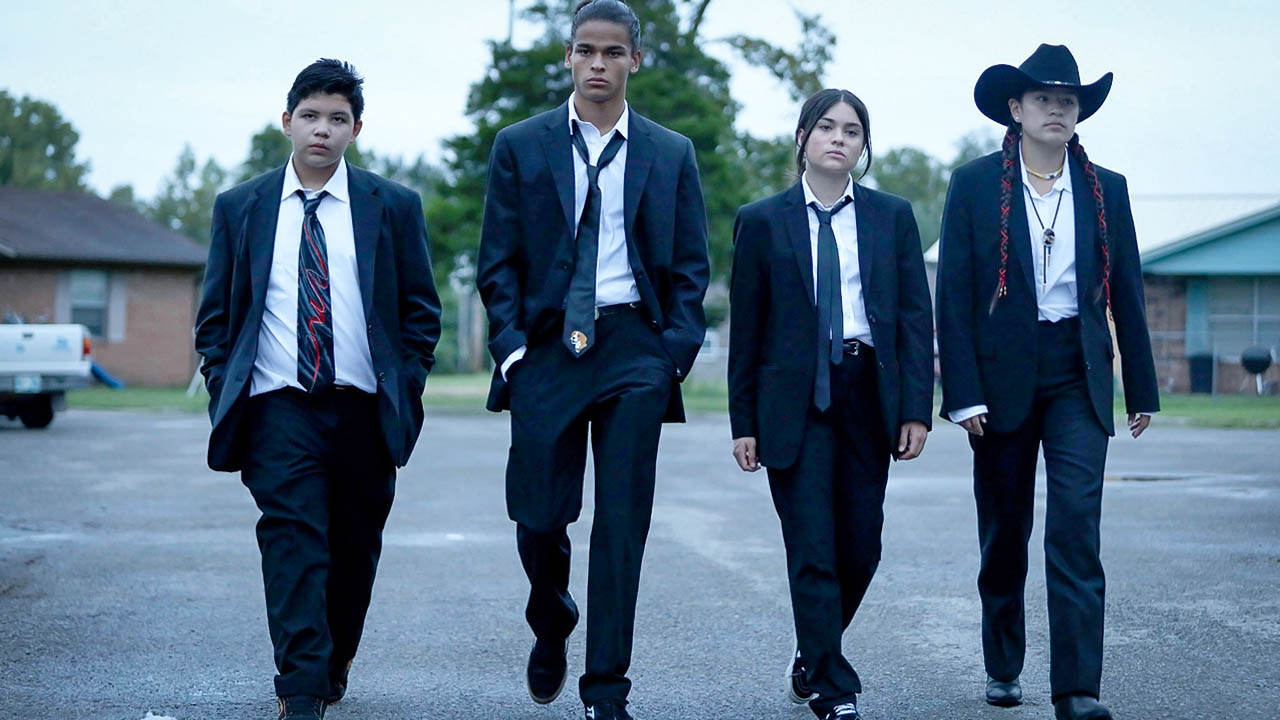
- Details
- By Levi Rickert
Opinion. It is common to pull into a parking lot of a restaurant or a hotel located on an Indian reservation and have a stray dog hanging around for some attention and maybe some food. These dogs are commonly referred to as reservation dogs.
Reservation dogs are real, dangerous, and sometimes deadly. The problem goes beyond begging dogs in parking lots being nuisances.
Earlier this week, Native News Online reported on a brutal attack on Saturday, January 21, 2023, on the Fort Hall Indian Reservation in Idaho, home to the Shoshone-Bannock Tribes. During the attack, a mother and her seven-year-old son were mauled by four dogs near a home on the reservation. The mother and her two children, who are non-tribal, lived in an RV behind the home of friends, who are tribal citizens. It should be noted that these dogs were not stray dogs, but were owned by the homeowners.
According to a tribal police report, the boy wandered onto the property from the RV. When he did not return after a few minutes, his mother went looking for him. She found him lying face down with the dogs mauling him in the front porch area of the home. To protect her son from additional injuries, the mother lay on top of her son. She was then mauled and sustained numerous dog bites.
The young boy died. His mother spent most of the week in an intensive care unit of an Idaho hospital. She was moved to another unit on Friday.
All four dogs were shot and killed by Fort Hall Police and Fort Hall Game Warden. The dogs — two Rottweilers and two mixed breeds — were still on the property when law enforcement arrived.
“Fort Hall Business Council members would like to offer their sincere condolences to the family of the young man who lost his life in the tragic incident,” Fort Hall Business Council Vice Chair Donna Thompson said in a statement.
Inquiries by Native News Online to officials to gain additional information on the tragedy were not responded to by the Tribes.
On the Tribes’ website, I found the Law and Order Code of Shoshone-Bannock Tribes. Chapter two is devoted to its animal control ordinance on the Fort Hall Reservation. The ordinance is in place “to protect the health, safety and welfare of the Shoshone Bannock Tribes and the residents of the Fort Hall Reservation.”
The dogs' owners, Benjamin Dominick Wolfchild and Juliana Wolfchild, were not home at the time of the incident. They were later issued citations for 15 violations of the Shoshone-Bannock Tribes Animal Ordinance. The citations included vicious animal attack, rabies vaccination, and over the limit of canine or feline pets.
According to the Animal Control ordinance, violations of the ordinance result in a $50 fine for the first violation; $75 for the second, $100 for subsequent violations.
The deadly incident is not unique to the Fort Hall Reservation. Across Indian Country on numerous Indian reservations, there have been several dog attacks that have resulted in vicious maulings and death. Last year, a woman was mauled to death by dogs on the Hopi Reservation in Arizona.
Some of the deaths on reservations are by dogs that are owned; others are by packs of wild dogs that roam reservations. There are reports of people who abandon their pets on reservations. Stray dogs roaming reservations reproduce offspring and are often left without food to eat. As a result, the stray dogs have to learn to fight and be vicious so they can eat.
Animals 24/7 reported April 2022 that tribal lands experience a death rate of 35 times the dog attack death rate for the rest of the United States.
DogsBite.org summarized fatal dog maulings in Indian Country last May 2022: “Tribal officials from the Navajo Nation to reservations in South Dakota have observed an increase in vicious dogs since 2015, indicating there is a rising prevalence of dangerous breeds among the base population of free-ranging dogs on the reservations, ‘some weird genetic cocktail that's part pit bull, part rottweiler and part whatever.’”
Indian Country suffers from a slew of problems from high levels of poverty, high unemployment, lack of healthcare, among other social injustices. Adding the problem of reservation dogs only adds to the problems that exist on Indian reservations.
Native Americans living on reservations should not have to worry about being bitten or mauled by man’s so-called “best friend.”
Vicious reservation dog attacks that result in maulings and even death need to be eliminated through increased funding for animal control, tougher penalties for irresponsible pet owners and awareness programs.
Thayék gde nwéndëmen - We are all related.
More Stories Like This
Superhuman. Should We Be Better Than We Are?Senator Ben Nighthorse Campbell Proved Representation Matters
The Lie We Keep Telling About Wounded Knee
Another Weapon of Mass Destruction
Colorado cannot heal until it confronts Sand Creek honestly
Help us defend tribal sovereignty.
At Native News Online, our mission is rooted in telling the stories that strengthen sovereignty and uplift Indigenous voices — not just at year’s end, but every single day.
Because of your generosity last year, we were able to keep our reporters on the ground in tribal communities, at national gatherings and in the halls of Congress — covering the issues that matter most to Indian Country: sovereignty, culture, education, health and economic opportunity.
That support sustained us through a tough year in 2025. Now, as we look to the year ahead, we need your help right now to ensure warrior journalism remains strong — reporting that defends tribal sovereignty, amplifies Native truth, and holds power accountable.
 The stakes couldn't be higher. Your support keeps Native voices heard, Native stories told and Native sovereignty defended.
The stakes couldn't be higher. Your support keeps Native voices heard, Native stories told and Native sovereignty defended.
Stand with Warrior Journalism today.
Levi Rickert (Potawatomi), Editor & Publisher


